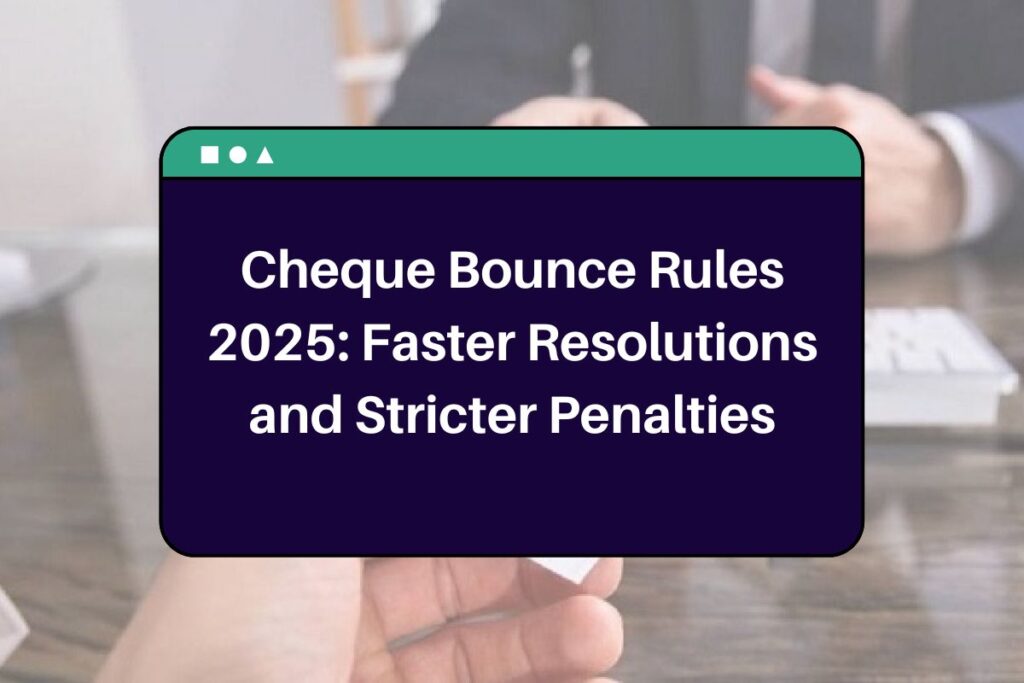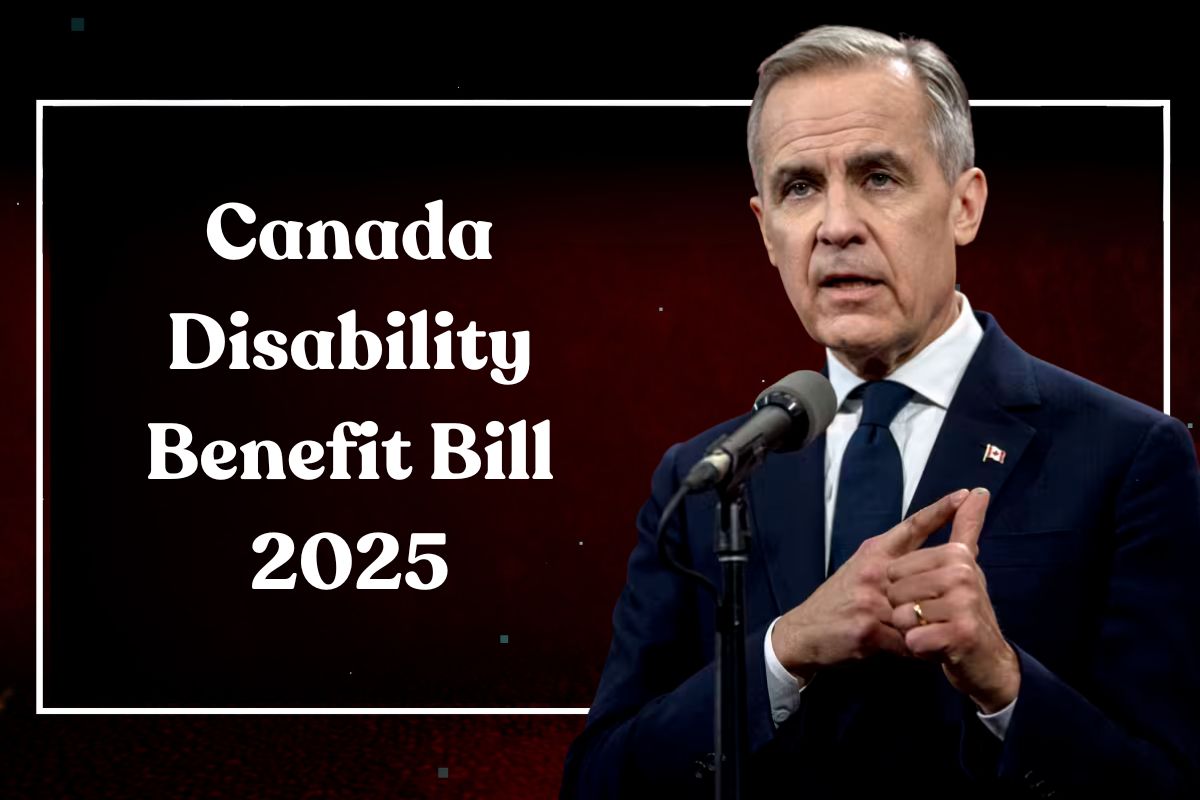Staying informed on Cheque Bounce Rules 2025 is must if you use cheques for financial transactions and these rules went into effect on 1 April 2025. To ensure harsher fines, quicker settlement, and increased transparency in the payment system, the Indian government revised the law in response to the growing number of cheque dishonor incidents.

Strengthening financial discipline, discouraging fraudulent activity, and providing individuals and business’s with additional time and resources to pursue justice are the goals of the revised rules.
Cheque Bounce Rules 2025
For many years, cheques have been a major part of financial transactions, providing a generally recognized paper-based payment method for both people and business’s. However, a recurring problem in India’s banking system is cheque bounce incidents, which occur when a cheque cannot be processed because of in sufficient fund or other problems, so to tackle these issues, RBI and GOI implemented more stringent cheque bounce rules in 2025.

The rules are intended to minimize fraudulent operations, encourage financial discipline, and improve general transparency in the banking industry. Businesses, financial institutions, and the general public will all be significantly impacted by the adoption of these new rules.
Understanding the Need for Change
In financial transactions, cheque bouncing-the rejection of a cheque, has long been a serious problem that often leads to legal issues and undermines confidence. In 2025, GOI has introduced significant reforms and more stringent rules on cheque bounces in an effort to improve financial responsibility, curb fraudulent activities, and expedite the settlement of such problems.

Motivated by regulatory bodies like the Reserve Bank of India (RBI) and influenced by court decisions, these changes aim to increase the reliability of cheque transactions and hold defaulters more accountable. It is crucial that people and business owners who accept cheques for payments understand these new rules.

Stricter Penalties and Faster Resolutions
The penalty for purposefully causing a cheque to bounce has been raised from one year to two years in jail under the new law. Relief provisions, however, are still in place for situations involving banking or technical issues. Reducing fraud is the goal of this rule, which went into effect on 1 April 2025, according to latest news. After three incidents of a cheque bounce, the RBI permits banks to temporarily freeze an account to punish habitual cheque bouncers.

This action is expected to discourage repeat offenders and promote bank account holders’ financial responsibility. To be fair and equitable, the RBI has also mandated a standard penalty for all banks. This means that there used to be a culture of uncertainty and abuse since penalty amount differs from bank to bank. Thus, by setting well-defined criteria, the new standards improve process transparency for clients.
Compulsory Real-Time Alert System
Implementing a mandated real-time alert system is a big step toward more transparency and keeping people from being taken by surprise. Banks are now required to alert account holders immediately by email and SMS if a cheque drawn on their account is returned unpaid. This ensures that the drawer is informed as soon as possible about the dishonor and its cause, enabling them to take immediate action.

Stricter Measures Against Habitual Offenders
In order to combat the pattern of frequent cheque bounces, the new rules impose harsher penalties on habitual offenders. If a cheque for an account is returned unpaid more than once (reports suggest this may start after three times), banks may be able to take more severe action, which might include temporarily suspending the account. This program seeks to promote more accountability among account holders who often make cheques for amounts that are insufficient.
Increase in Enforcement
The penalties for cheque bounce offences are considerably more severe under the new rules:
Increased Legal Penalties
| Old Rules | New Rules | |
| Imprisonment Term | Up to one year | Up to two years |
| Penalty amount | As per cheque amount | Up to two times the cheque amount |
| Account Restrictions | Limited or inconsistent | Account freeze after 3 consecutive bounces |
| Penalty Structure | Depend on banks | Standardized across all financial organizations |
How to avoid cheque bounce?
You can prevent cheque bounces by keeping in mind some facts on it, you must use digital payment methods such as RTGS, NEFT, or UPI. You must check your bank balance before writing a cheque and never make the mistake of assuming that the amount will be in your account by the time the cheque clears, even if money is due to arrive in your bank account.
The amount on the cheque should not be the only amount in your bank account when you present it. To simply prevent legal action, if your cheque bounces and you wish to avoid it, get in touch with the payer, explain the situation, and attempt to settle the payment within 15 days. If a case is filed against you wrongfully, remember to speak with your advocate or seek legal advice.
Tips to Avoid Cheque Bounce
In order to avoid a situation where a cheque bounces, remember the following:
- Make sure the cheque has the correct date on it and never give out a cheque that is torn.
- Confirm that there is a sufficient fund in your account before writing a check.
- Cheques should be crossed (draw two parallel lines) to prevent immediate cashing.
- In both words and figures, clearly write the amount.
| Homepage | BSEBSTET.Com |





